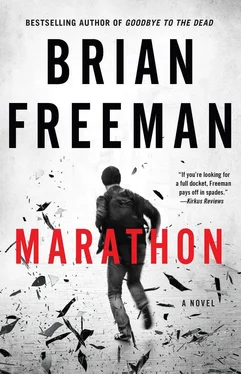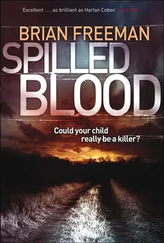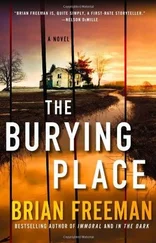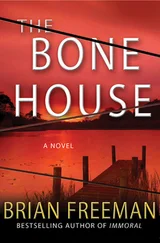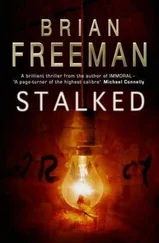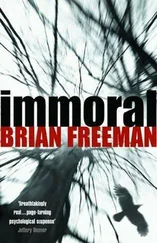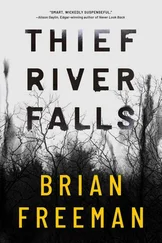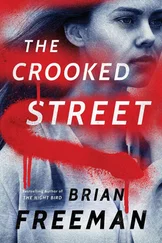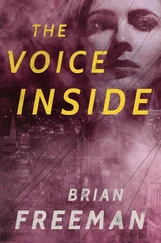Sheer, wicked tiredness began to take its toll, but she couldn’t stop searching.
Serena thought about Cat, on her own the previous year, and she remembered the girl taking refuge inside the city’s infamous Graffiti Graveyard. A killer had been chasing her, and she’d hidden from him among the graffiti-covered concrete pillars of I-35. It wasn’t the first time she’d sought protection there, she’d told Serena. The homeless hung out under the freeway, like a city within the city.
Suddenly, Serena knew that Cat had hidden there again. When she was scared, when she was alone, when she was hurt, she would go back to her roots. It was a sister’s intuition. Cat was back at the Graffiti Graveyard.
Serena didn’t know where she found the strength to run, but she ran. She was on the boardwalk near the lake, and she reversed course, sprinting between two hotels. She headed for the old ore ship, the Charles Frederick , which was docked in the harbor, and then she ran along Railroad Street bordering the freeway. When she reached the short slope that led to a flooded ravine beneath I-35, she skidded downhill and splashed through the shallow water to an iron ladder propped against the opposite wall. She climbed it and dropped down into a narrow tunnel between the freeway ramps. Normally, traffic buzzed by in both directions overhead, but not today.
Immediately, she shouted Cat’s name. The long stretch of grass and mud was deserted, and her voice echoed back to her, but no one answered. Concrete slabs propped up the freeway, and wild graffiti turned every square inch into a rainbow of guerilla art.
“Cat?” she called again. “Cat, are you here?”
Serena heard something from behind one of the pillars. Someone was crying.
“Cat? It’s Serena.”
The noise of the sobbing guided her. Thirty feet away, she spotted the girl sitting on the wet ground, her hands wrapped around her knees. Serena hurried to her and knelt at her side.
“Cat, are you okay? Are you hurt?”
The girl couldn’t talk. Her black hair was plastered to her face in ropes. Tears streamed down her pretty skin, mixed with dirt and blood.
“Let me get you to the hospital,” Serena said.
“I don’t need to go there.”
“You’re bleeding,” Serena told her.
Cat shook her head. Her eyes were haunted. “It’s not my blood.”
Serena understood, and there was nothing to say. She reached out and gathered up the girl tightly in her arms. She held on, letting Cat cry herself out in a muffled wail that echoed from everywhere in the tunnel. Above. Below. From the shadows of the ravine.
Eventually, the girl grew quiet, but Serena didn’t let go.
“Can you tell me what happened?” she asked.
Cat separated herself from Serena and grabbed something from the ground beside her. It was a dark-colored beret, which the girl twisted between her fingers. She held it out for Serena to see.
“What’s that?” Serena asked.
Cat sniffled. “I stole this.”
“What?”
“I was coming to find you at the finish line, and I saw this in the window of one of the shops. I went inside, and I took it.”
Serena shook her head. “Why? You have money.”
“I don’t know why. I just did it.”
It was always that way with Cat. Two steps forward, one step back. The girl had made progress, but she kept doing things — making mistakes — that gave her a reason to justify the self-hatred she felt. You gave up your baby, so you must be a bad person.
“Why are you telling me this?” Serena asked.
Cat’s voice rose. “Don’t you get it? If I hadn’t stolen this hat, I’d be dead. I went inside, took it, and as I walked back out, the bomb went off. If I’d kept going past the store, I’d be dead. I’d have been right there where the explosion was. What does that mean, Serena? Why would God do something like that?”
“Oh, Cat,” Serena murmured.
“I should have been punished, and instead He saved me. That doesn’t make any sense.”
“Nobody deserves that kind of punishment. Nobody. This had nothing to do with God. This was someone cruel and evil who did this. Period.”
“You can’t imagine what it was like. There was this huge explosion, and smoke, and I felt like I’d been hit in the chest. A woman ten feet away got struck by something, and the blood sprayed from her face onto mine. I saw people on the ground. I saw somebody’s hand , Serena. A hand, just lying there. Everybody was screaming. And there I was, with this beret I’d stolen, and all I could think was: I’m supposed to be dead.”
“No, you’re not,” Serena said.
“Who could do something like this?” Cat asked. “I mean, everybody looks forward to the marathon. It’s something good for the whole city. Who could rip it apart like this?”
Serena wanted to say something, but she had no explanations.
“You know what I feel?” Cat asked.
“Tell me.”
“Helpless,” Cat said, sounding older than her seventeen years.
“I understand.”
“This is just how it was when I was living on the streets. I mean, yeah, I was scared all the time, but you get used to being scared. You deal with it. The worst part of it was feeling helpless. Like there’s nothing you can do to change it. Like things are going to be bad forever, and you might as well give up.”
Serena realized she was crying, too. She wasn’t a sister to this girl. She was a parent, and she wanted to make it better for her, and she couldn’t. She knew exactly how Cat felt, because she felt the same way. It was how the entire city of Duluth felt at that moment.
“That’s what these people want,” Serena told her. “That’s why they do this. To make us give up. But you know what? We can’t.”
Special Agent Gayle Durkin of the Minneapolis office of the FBI kept one photograph on her desk. Otherwise, her cubicle was impersonal, perfectly organized, and all work, which was a good description of Gayle herself.
The photograph showed her twenty-six-year-old brother, Ron. His face was at arm’s length to the camera on his phone; he was taking a selfie, with a sly grin on his face. He had shoulder-length brown hair and a rainbow-colored headband, and Gayle could see his Che Guevara T-shirt, which he’d probably worn just to annoy her. Brother and sister couldn’t have been more different. Ron was the hippie; Gayle was ultraconservative. She could see the Paris street and outdoor café tables behind her brother, and on the horizon, the upper half of the Eiffel Tower. He’d taken the selfie and texted it to her in Minnesota, with the caption: You’re at work. I’m here. Who’s got life figured out?
Ninety seconds later, the bomb went off. Six people died in the Paris bistro, including Ron and the ISIS radical who’d worn the suicide vest.
That was two years ago.
And now another bomb. Close to home.
Gayle watched the television footage streaming on her computer monitor. One of the local stations already had a helicopter hovering over Lake Superior, with a camera angle on the destruction in Canal Park. She recognized everything. Duluth was her hometown. She’d grown up there, and her parents still lived in the same house on Martin Road near Amity Park they’d owned since they got married. She and Ron had watched the finishers at the marathon a dozen times from the exact site of the blast, and she’d run the half marathon once herself.
The camera panned, and she could see the rest of the city. Away from the lake, Duluth climbed sharply, with streets as steep as those in San Francisco. She saw the towers of the antenna farm atop the hillside, framed like metal soldiers against black clouds. The cluster of downtown buildings terraced on the skyline — the Greysolon, the circular Radisson Hotel, the sprawling St. Mary’s hospital complex, and the stone clock tower of the old high school — made Duluth look like a big city, when it was really just a small town dressed up to look more sophisticated, like a girl wearing her mother’s clothes.
Читать дальше
